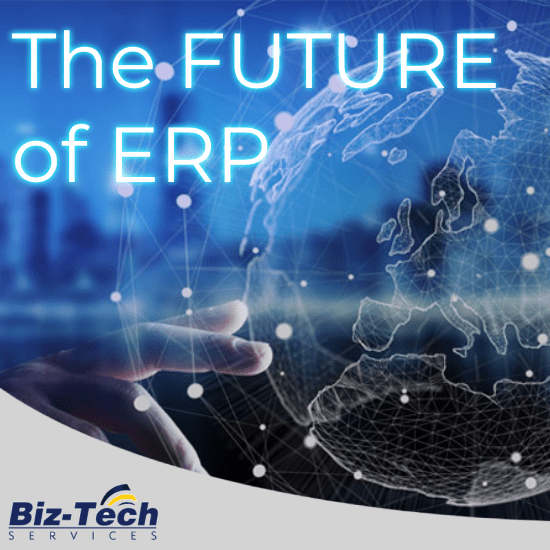
Cloud Computing in 2021: The Future of ERP
We have all known the advantages of cloud computing solutions. If we talk about the future of ERP, there are various cloud computing trends like hybrid cloud, serverless computing and containers that will rule the industry in 2021. In fact, cloud technologies are now embedded in enterprises’ business strategies. Ninety-two percent say their IT environment (infrastructure, applications, data analytics, etc.) relies on the cloud and is predicted to grow to 95% in 18 months. If that wasn’t convincing enough, 54% of enterprises’ cloud based systems moved from on-premise systems to the cloud. Meanwhile, 46% of them were purpose-built for a cloud computing solution.

The Power of AI in ERP
The use of Artificial Intelligence (AI) in ERP systems to help with (or actually perform) decision making processes. These will be supported by data analytics capabilities that are increasingly included in ERP solutions—or integrated with them. Examples of this trend include continually self-optimizing operational models and intelligent customer interfaces for configure-to-quote. Data analytics in general will play a bigger role in operations management.
Serverless Computing
Cloud serverless computing is a technique for implementing functions in the cloud on a required basis. The enterprises rely on serverless computing as it provides the space for working on the core product without the stress of operating or managing the servers. Such a serverless platform has the potential to change the game of enterprise preferences and conception of cloud adoption with endless advantages.
Hybrid Cloud
According to Gartner, the worldwide public cloud services market is about to grow by almost 17%, computing to produce a gross amount of $266.4 billion by 2020. This is a staggering number compared to the $227.8 billion, calculated in the previous year. Where the actual amount of enterprises using hybrid cloud was 58% in 2019 and 52% in the year 2018, the present year witnesses huge increment. When everybody was discussing this new technological existence, MarketsandMarkets also discussed the increased demand for hybrid cloud computing. They highlighted its feature, focusing on its multiple advantages. What advantages? Speed, Control and Security.
The Future of ERP
Cloud adoption has seen a significant increase over the last few years. The cloud is obviously here to stay. Many organizations are currently rushing to migrate to cloud computing solutions with the belief that cloud based ERP systems go hand-in-hand with advancement. Almost everything in the tech industry is connected to the cloud in some way or another — unless it’s specifically kept in local storage for security reasons. As tech giants and tech startups find new ways to organize, process and present data, cloud computing will further become an integral part of the industry.
To learn more about the benefits of transitioning into a cloud based ERP solution, you can check out our last blog here.




